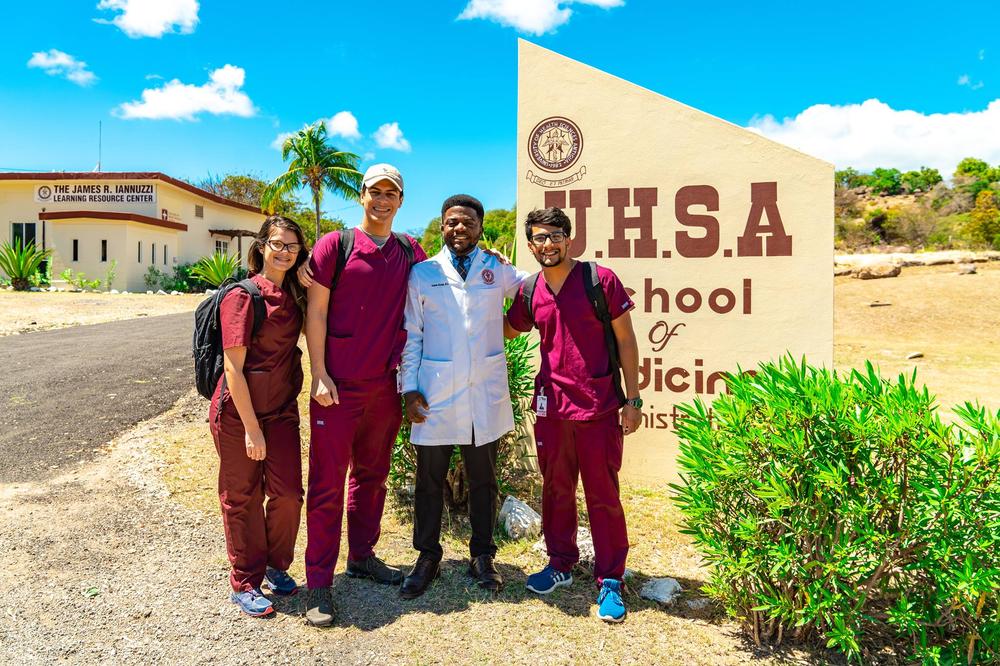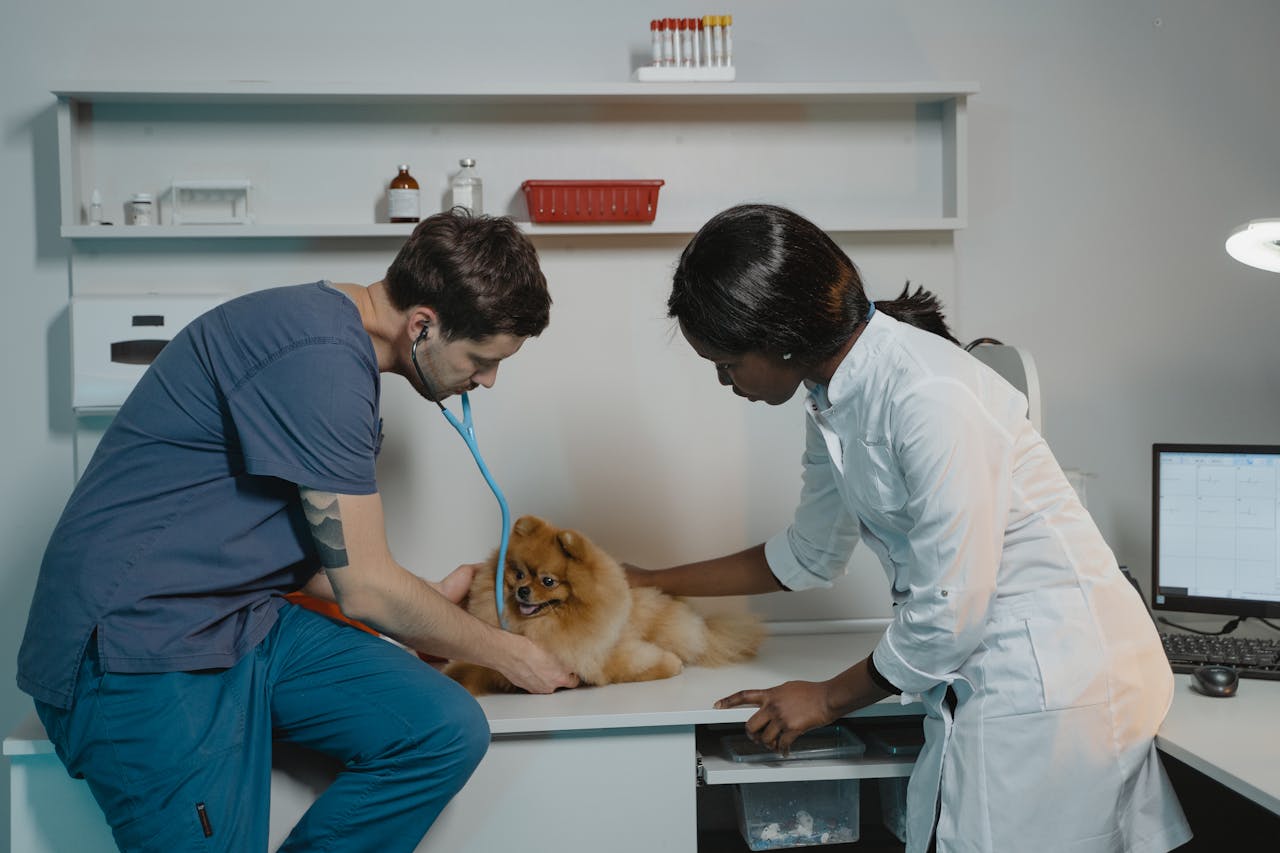What If I Don’t Get the Grades I Expected to Study Medicine Abroad?

It’s your big day. You’ve worked hard preparing for exams, as well as putting together all you need to start your journey studying medicine abroad. But what happens if your grades don’t match your expectations? If they fall short of what you need to get into medical school abroad?
It might feel like a setback, but this is not where your journey ends; studying medicine abroad is still very much within reach. This blog will cover everything you need to know, what universities often accept, when predicted grades matter, what alternatives exist, and how Medlink Students helps make sure you still reach your dream.
Key takeaways in this blog include:
- Some universities in Europe and the Caribbean accept predicted grades.
- Even if predicted grades fall short, studying medicine abroad is still possible
- Resits, gap years, and alternative degrees as options to study medicine abroad
- Pre-med and foundation years bridge subject gaps and guarantee progression to medical school
- Extracurriculars, work experience, and strong applications can strengthen medicine abroad applications
Table of Contents
- 1 What Are Predicted Grades and Why They Matter
- 2 Universities That Accept Predicted Grades (and Have Options if They Don’t Turn Out as Expected)
- 3 How to Strengthen Your Application If Your Grades Fell Short
- 4 What to Do If You Don’t Meet Entry Requirements for Medicine
- 5 Support, Guidance & How Medlink Students Helps You
- 6 FAQs
- 6.1 Can Predicted Grades Get Me Into Medical School Abroad?
- 6.2 What Options Are Available if My Grades Are Too Low for Standard Medical School Entry?
- 6.3 Is Retaking A-levels Better Than Pre-med?
- 6.4 Which Universities Accept Predicted Grades?
- 6.5 What Kinds of Criteria Do Medical Schools with Lower Requirements Still Expect or Require?
- 6.6 What Support Does Medlink Students Offer for Students With Low Grades Who Want to Study Medicine Abroad?
What Are Predicted Grades and Why They Matter
The grades you submit, such as your A-levels, IB, or equivalents, prove you can manage rigorous science coursework, critical thinking, and long hours of study. The higher your grades, the better your chance of getting accepted into medical school.
In many systems (especially UK/UK-style systems), when you apply before your final examinations, schools issue predicted grades. These are the grades teachers believe you will achieve, assuming everything goes well. Universities use them to decide whether to offer you a conditional offer, and you get admitted if you reach or surpass them in your final exams.
But keep in mind that:
- Predicted grades alone don’t guarantee being accepted to medical school. If, when the results come, you fail to meet the specific entry requirements (final grades, certifications, practical exam parts), a conditional offer can turn into a rejection.
- Some universities accept predicted grades upfront and only change the final status if you don’t meet the necessary conditions.
- Universities often consider other strengths (personal statement, interviews, tests like UCAT/BMAT/GAMSAT, extracurriculars).
Universities That Accept Predicted Grades (and Have Options if They Don’t Turn Out as Expected)


A good example is the University of Health Sciences Antigua (UHSA). UHSA even provides a dedicated pre-medical programme, which allows students to fill in any missing subject requirements or strengthen weaker grades. Completing this pre-med course guarantees progression into their medical programme, making UHSA a strong option for students who may be uncertain about how their final results will turn out.
It’s worth noting that UHSA is not the only medical university abroad that takes this approach. Some other European and Caribbean universities also accept applications based on predicted grades, if you can prove your qualifications for entry later. Even if you don’t quite get the grades you expected, many offer preparatory courses, so you can still follow your dreams of becoming a doctor.
If you’re still not sure about which university fits your needs the most, book a free consultation with our academic advisors or check out our list of 100+ Best Medical Schools In Europe Taught In English.
How to Strengthen Your Application If Your Grades Fell Short
Your application does not depend just on your grades. Here are some things you can do to make your application stronger:
- Extracurricular activities and community or volunteer work show that you are committed, caring, a leader, and aware of what medicine is all about.
- Relevant work experience or internships, like shadowing, working in a lab, or caring for patients. Show that you know what you're getting into.
- A personal statement where you’re honest about the problems and challenges you've faced. Talk about what you've learned, demonstrate your resilience and show dedication to learning medicine.
- Strong letters of recommendation. References who can talk about your potential and work ethic.
- If med schools want you to take the UCAT or other aptitude tests or have interviews (MMI, etc.), make sure you prep and do well on them. They can sometimes make up for exam grades that aren't quite as good.
What to Do If You Don’t Meet Entry Requirements for Medicine
Nobody wants this scenario, but it’s wise to know the options:
Foundation or Pre-Med / Preparatory Year
If you’re missing 1 or more core subjects or if your grades are slightly below what medical schools expect, Pre-med foundation medicine courses give you a 2nd chance. The advantage is that most foundation or pre-med years guarantee progression into the medical degree if you pass. This makes them 1 of the fastest and most secure ways to start your journey to medicine abroad.
Resitting Exams
Many students think resitting A-levels and exams is the only way into medicine if they miss the required grades. However, taking resits means waiting an entire year, are costly, and can be mentally draining. Some universities also limit the number of resits they accept.
Instead, we recommend looking into options with flexible admission criteria, or signing up for a pre-med programme.
Alternative / Related Degrees
Some students opt for biomedical sciences, health sciences, or similar degrees first, then apply for graduate-entry medicine or look-up paths that accept graduates. However, this may end up longer than taking a pre-med year or enrolling at a medical school that accepts their grades.
What About Taking a Gap Year?
Some students consider taking a gap year when they don’t get the grades they've expected and trying again next year. While this might seem like an option, it usually means delaying your medical studies and doesn’t really guarantee you a place. That’s why most students choose to move forward straight away with a feasible pathway that secures their entry into medicine.
If you’re not sure what path you should be taking, don’t worry, every student’s situation is different. Book a free consultation with 1 of our expert advisors, and we’ll help you figure out the best path forward to medical school.
Support, Guidance & How Medlink Students Helps You
You do not have to walk this road alone. Medlink Students can support you in every step, especially if things didn’t go as planned.
Our Student Success Programme connects you with the right accredited medical schools that accept predicted grades and/or provide foundation and pre-med programs. Moreover, we'll help you polish your application, plan backup plans in case things don't work out, and take care of the practical details.
Don't let the grades outcome determine your future. Our expert advisors will help you navigate the process of studying medicine abroad if you schedule your free consultation today.
FAQs
Can Predicted Grades Get Me Into Medical School Abroad?
Many universities issue conditional offers based on predicted grades, as long as you meet the final requirements later on.
What Options Are Available if My Grades Are Too Low for Standard Medical School Entry?
You’ve got multiple options: retake exams, take a foundation/pre-med year, apply to medical schools in Europe or the Caribbean with lower entry requirements, or use a gap year to strengthen your profile.
Book a free consultation today, and we’ll help you look at foundation/pre-med programmes and universities with flexible admission criteria rather than automatically assuming you must wait a year.
Is Retaking A-levels Better Than Pre-med?
Not always. Resits take another year, while pre-med lets you move forward immediately and often guarantees a spot if you pass.
Which Universities Accept Predicted Grades?
UHSA is 1 strong example. Several European and Caribbean universities also do, but entry requirements vary. Medlink can guide you to the right 1 by booking a free consultation today.
What Kinds of Criteria Do Medical Schools with Lower Requirements Still Expect or Require?
You’ll generally still need a high-school diploma, proof of English proficiency (IELTS/TOEFL if applicable), an interview (sometimes), and proper certified/transcribed documents, and some schools may have targeted entrance tests for specific subjects.
What Support Does Medlink Students Offer for Students With Low Grades Who Want to Study Medicine Abroad?
Medlink handles university selection, application paperwork, translations, interview prep, and can place you into foundation/pre-med programmes or alternative universities, plus free consultations to map your quickest route to medicine.
Leave a Reply


About Medlink Students
Leading international recruitment company for medical students in Europe. British Council Certified Agents. 10+ years of experience and more than 10,000 students advised.








